From songs and lyrics to the people who shaped her story, these 100 Taylor Swift-inspired baby names offer the ultimate list for Swifties naming their future superstar.
Earth Day is here — and there’s no better way to celebrate than with a list of Earthy girl names.
After all, having a baby is one of the greatest gifts you could give this planet — especially on or around Earth Day — and a first (and middle) name is one of the greatest gifts you could give your child.
So, why not use this special day as inspiration for your daughter’s name?
RELATED: 50+ Sci-Fi Girl Names Inspired By Fictional Characters
Earthy girl names could include anything from Gaia, the Greek word for “Earth,” to Savannah, a tropical or subtropical grassland with scattered trees.
You can also go with a baby name related to the color green, such as Esmeralda, or names like River and Isla — both of which are inspired by water, one of Earth’s greatest assets.
Follow along for more unique Earthy girl names to consider for your soon-to-be daughter.
Baby Girl Names That Mean Earth or Land

Earth Day is a lot like a birthday celebration for our planet.
Just as we celebrate children on their birthday every year, Earth Day is when people around the world come together to show appreciation for our home planet.
It happens annually on April 22 and acts as a reminder of how important the Earth is to all of us.
Whether you’re having a daughter on or around April 22 or simply like the idea of naming your baby after the beautiful planet they were born on, here are some of our favorite baby girl names that mean Earth.
Terra
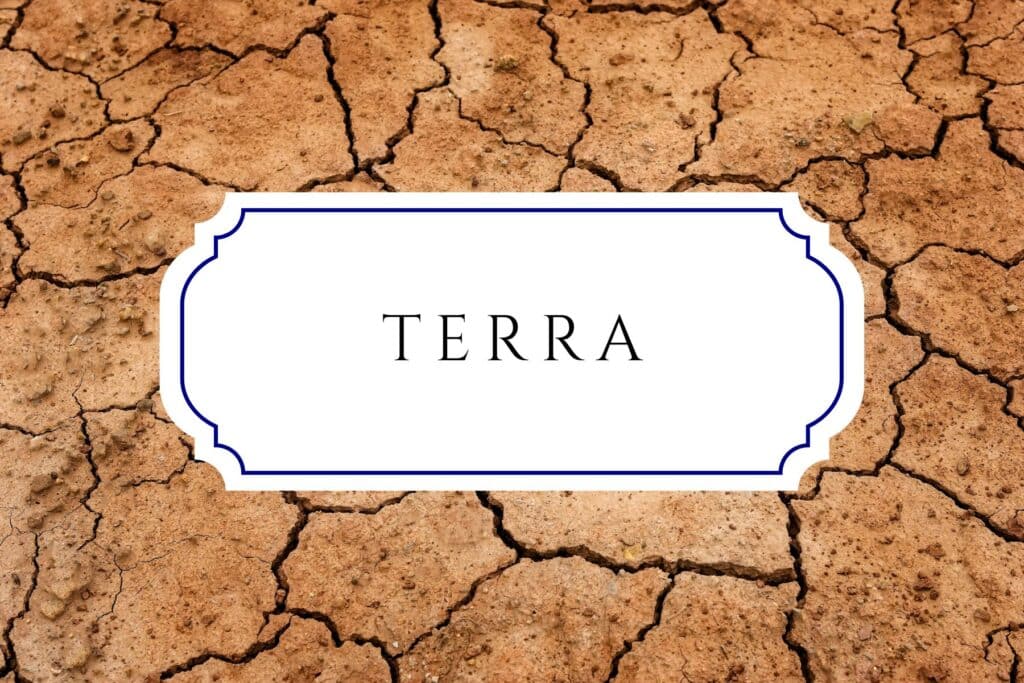
Origin: Latin; Roman
Meaning: Earth; Land
Terra, pronounced TEHR-uh, comes directly from the Latin word terra, meaning "earth" or "land." In Roman mythology, Terra Mater (Latin for Mother Earth) was a goddess personifying the earth.
Tierra
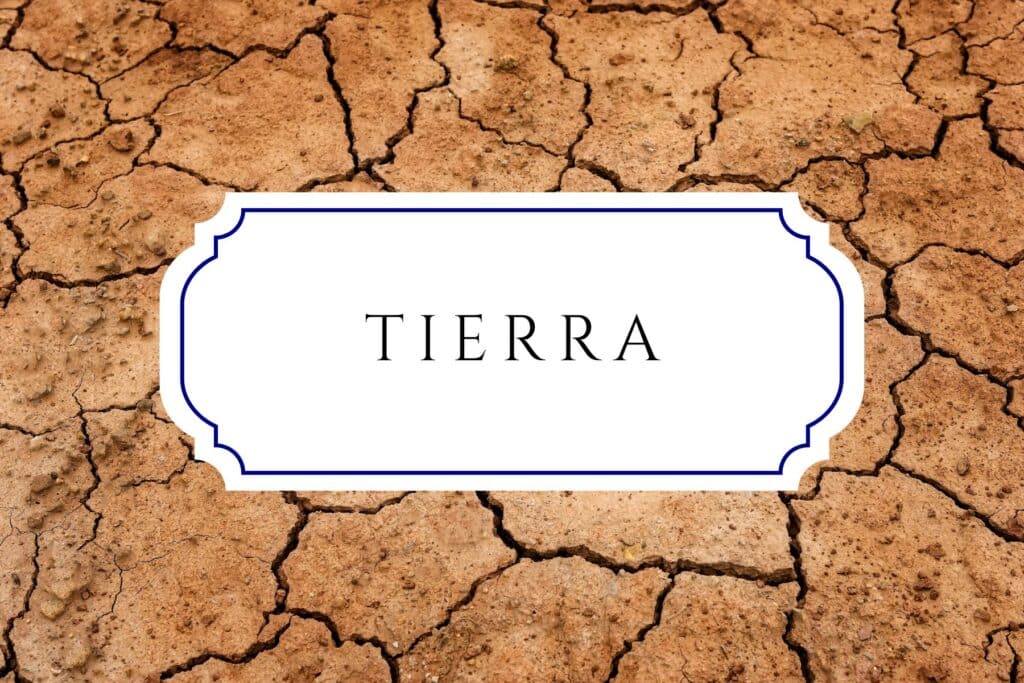
Origin: Spanish; Latin; Greek
Meaning: Earth; Land; Crown
Tierra, pronounced tee-EHR-uh, comes from the Spanish word tierra, which is derived from the Latin word terra, meaning “earth” or “land.” It can also be a variant of Tiara, which means “crown” in Greek.
Gaia
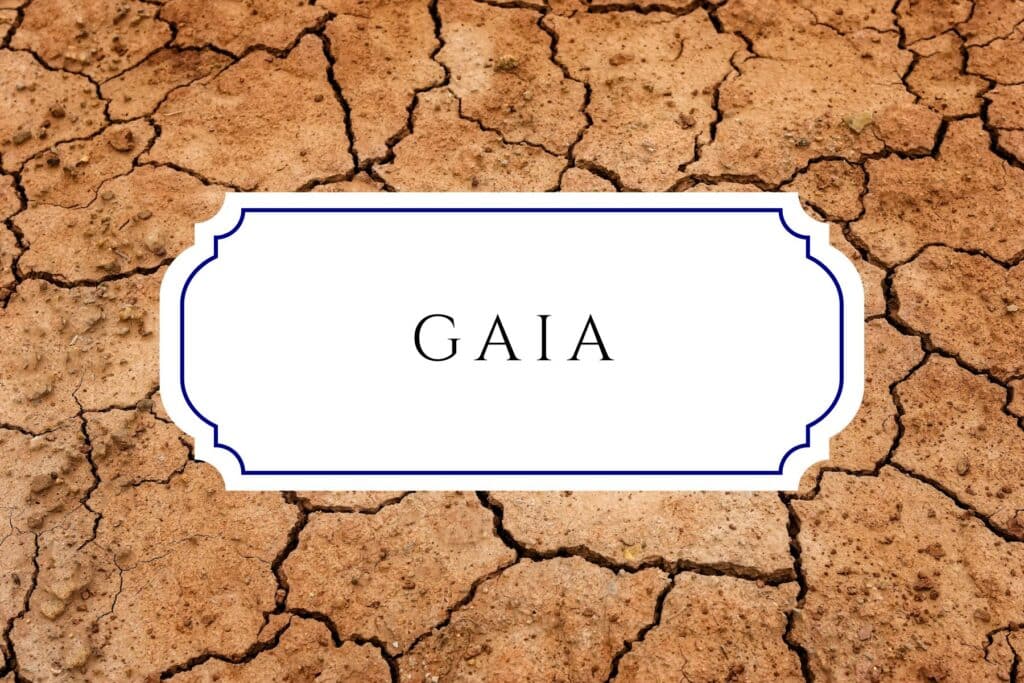
Origin: Greek
Meaning: Earth; Land
Gaia, pronounced GUY-uh or GAY-uh, comes directly from the Greek word gaia, a parallel form of the Greek word ge, meaning “earth” or “land.” In Greek mythology, Gaia was the personification of Earth.
Eartha
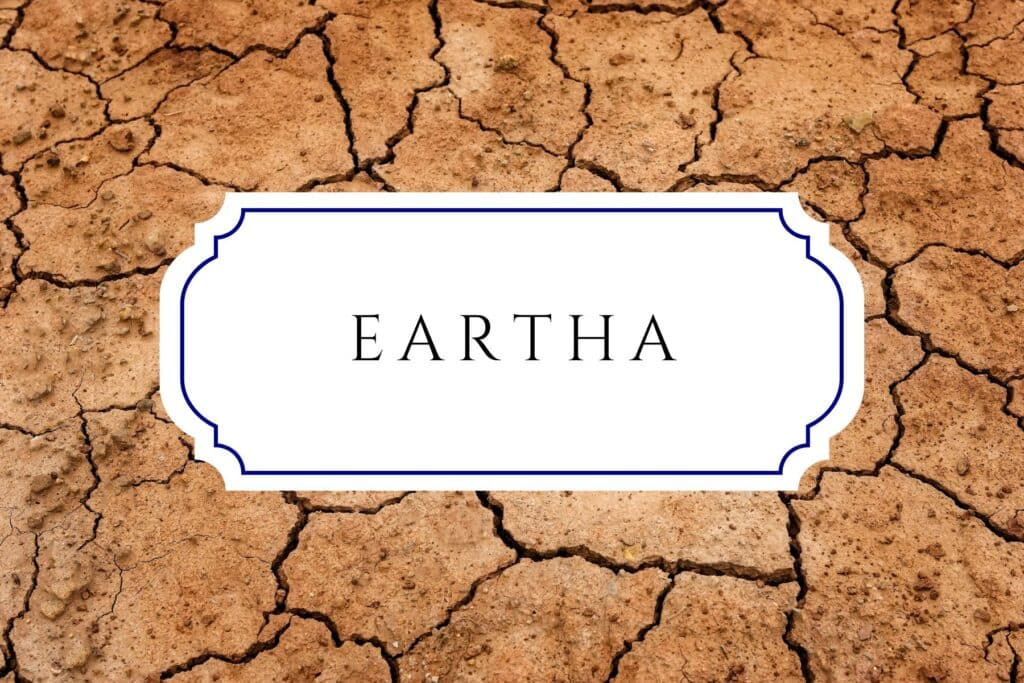
Origin: English; Invented
Meaning: Earth
Eartha, pronounced ER-thuh, is an English elaboration of the word "earth,” which is derived from the Old English word eorþe and Germanic word ertho. It was worn by American singer and actress Eartha Kitt.
Sienna
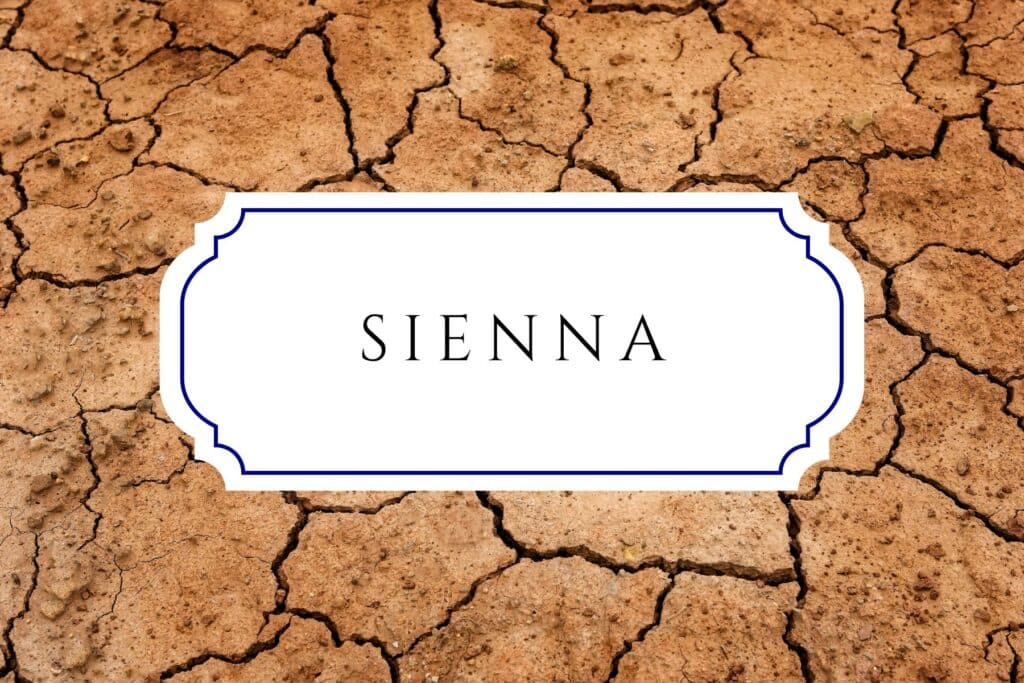
Origin: Italian
Meaning: Orange-red; Clay material
Sienna, pronounced see-EN-uh, takes its name from the Italian city of Siena and the reddish-brown earth pigment mined there. The Terra di Siena (Earth of Siena) has been used in art since ancient times.
Tellus
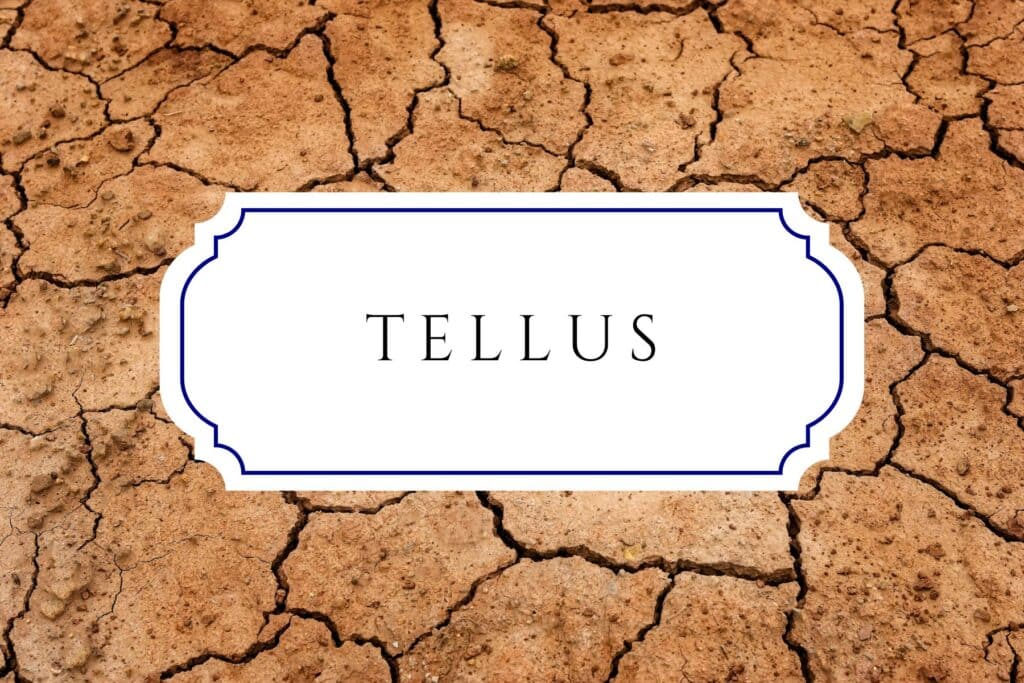
Origin: Latin; Roman
Meaning: Earth; Globe
Tellus, pronounced TEL-uhs, comes directly from the Latin word tellus, meaning “Earth” or “globe.” In Roman mythology, this is the original name for Terra (Terra Mater), the personification of Earth.
Adamina
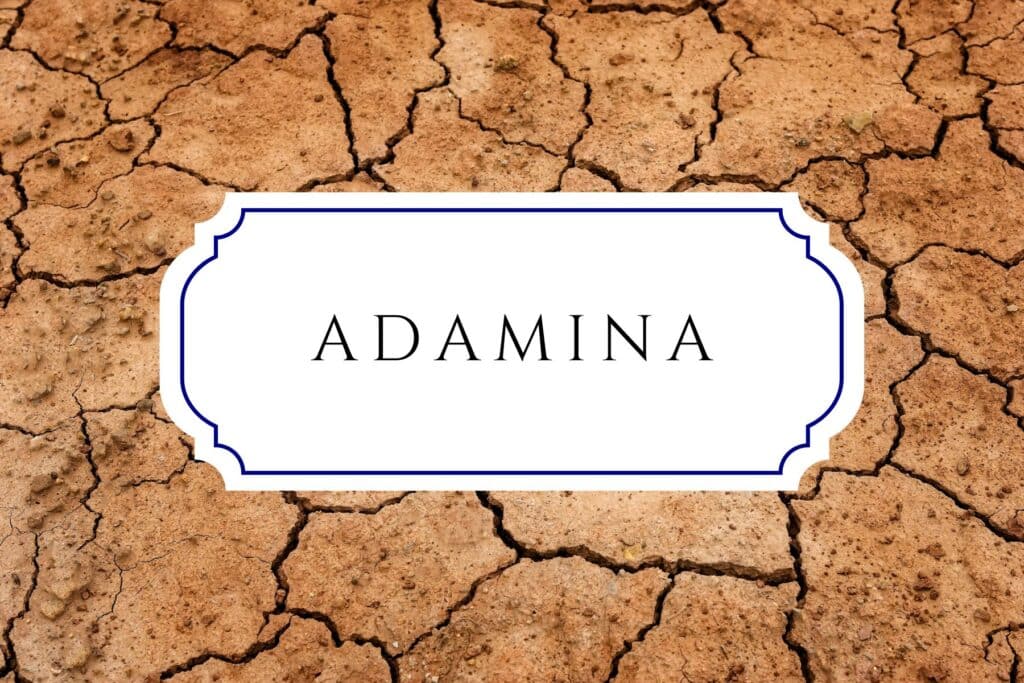
Origin: Hebrew
Meaning: Red Earth; Of the Earth
Adamina, pronounced ad-uh-MEE-nuh, is a feminine form derived from Adam, which comes from the Hebrew word adam, meaning "to be red" and adama, meaning “Earth.” According to Genesis in the Old Testament, Adam was created from the earth by God.
Erda
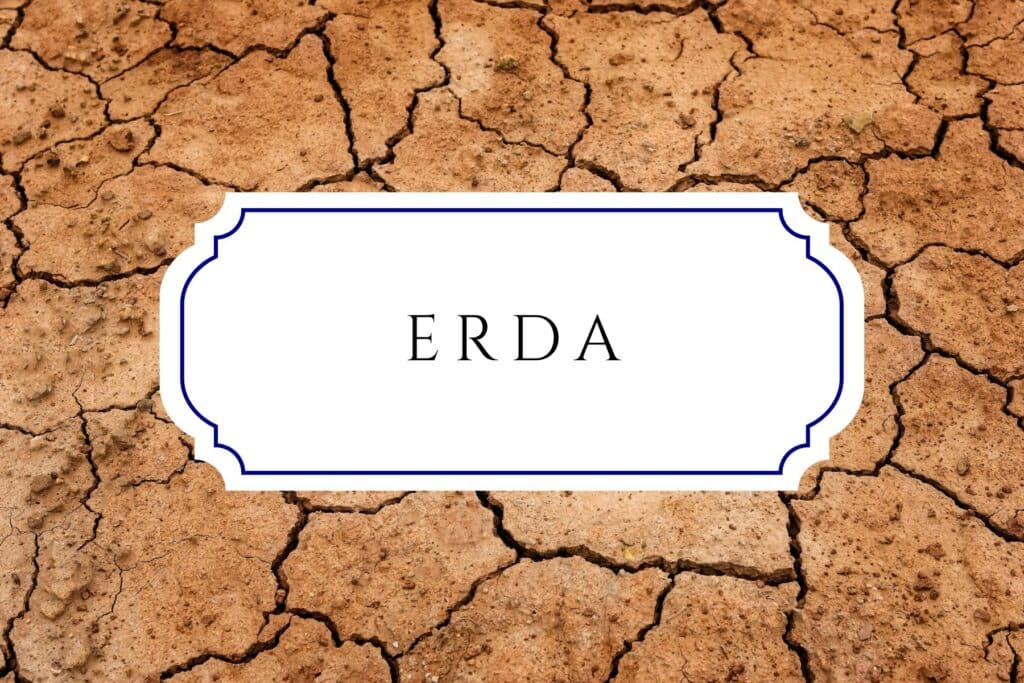
Origin: Old Germanic; Old Norse
Meaning: Earth; Soil
Erda, pronounced ER-duh, comes from the Old Germanic word erda, meaning “Earth” or “soil.” The name was used in Richard Wagner’s “Der Ring des Nibelungen,” where Erda was a character inspired by Jörð, the personification of Earth in Norse mythology.
Avani
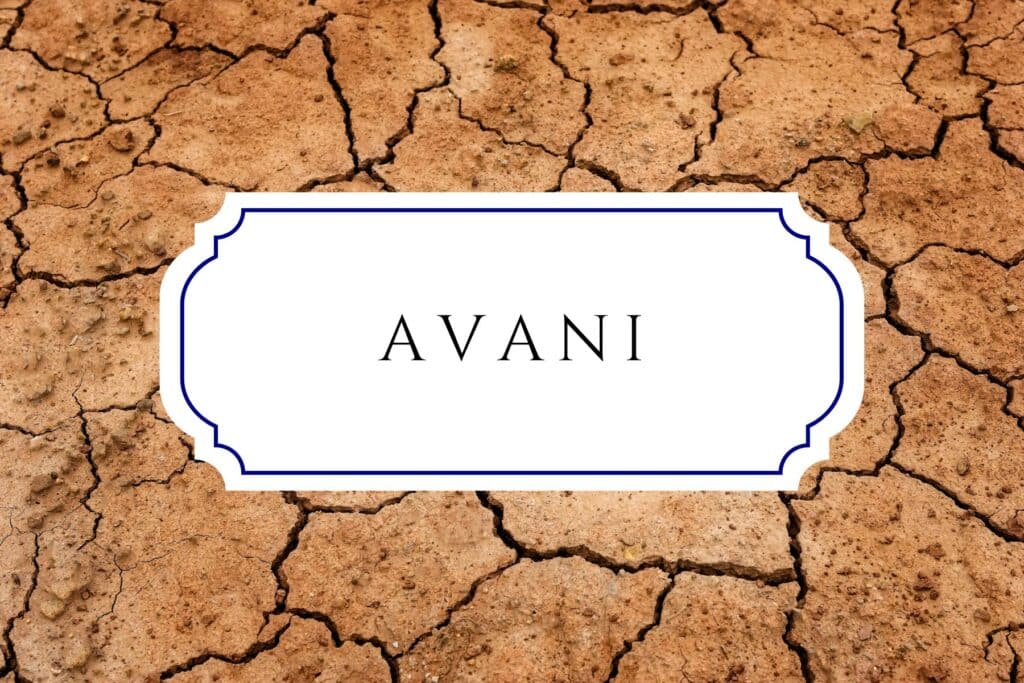
Origin: Sanskrit
Meaning: Earth; Earth goddess
Avani, pronounced uh-VAH-nee, comes directly from the Sanskrit word avani, meaning “Earth” or “Earth goddess.” The name is often associated with the Hindu goddess Prithvi, the goddess of the Earth.
Zemyna
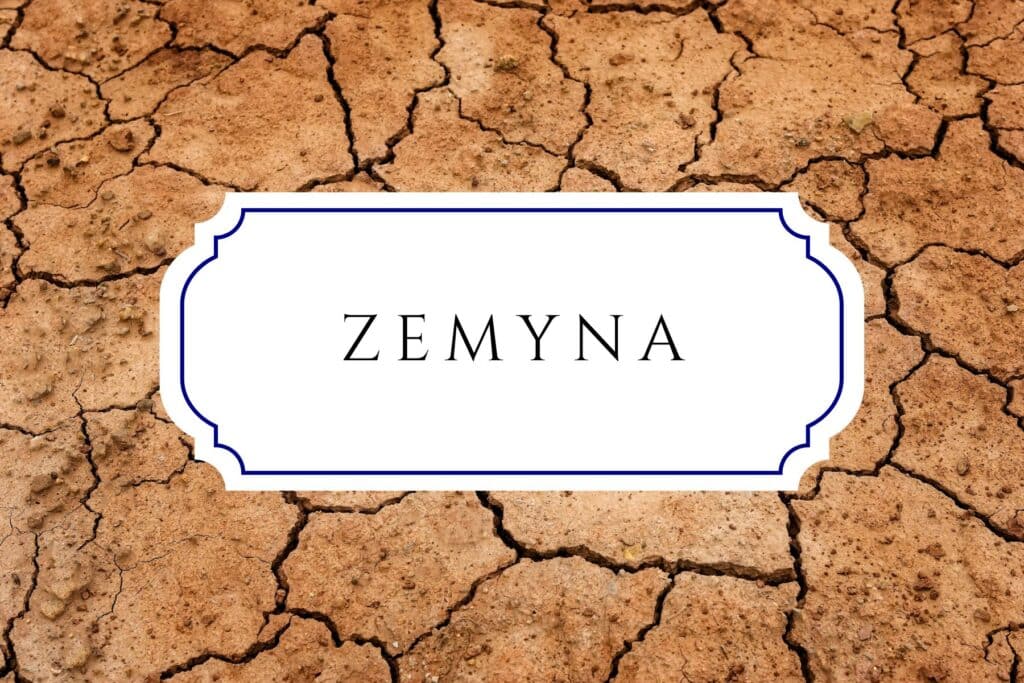
Origin: Lithuanian
Meaning: Earth; Earth goddess
Zemyna, pronounced zeh-MEE-nah, comes from Lithuanian mythology, where Žemyna was the goddess of the Earth and fertility. The name itself derives from the Lithuanian word žemė, meaning "Earth."
Meadow

Origin: Old English
Meaning: Grassy field; Field of hay
Meadow, pronounced MED-oh, comes directly from the Old English word mædwe, referring to a grassy field, particularly one used for hay. The name evokes pastoral landscapes, wildflowers, and open spaces.
Prairie
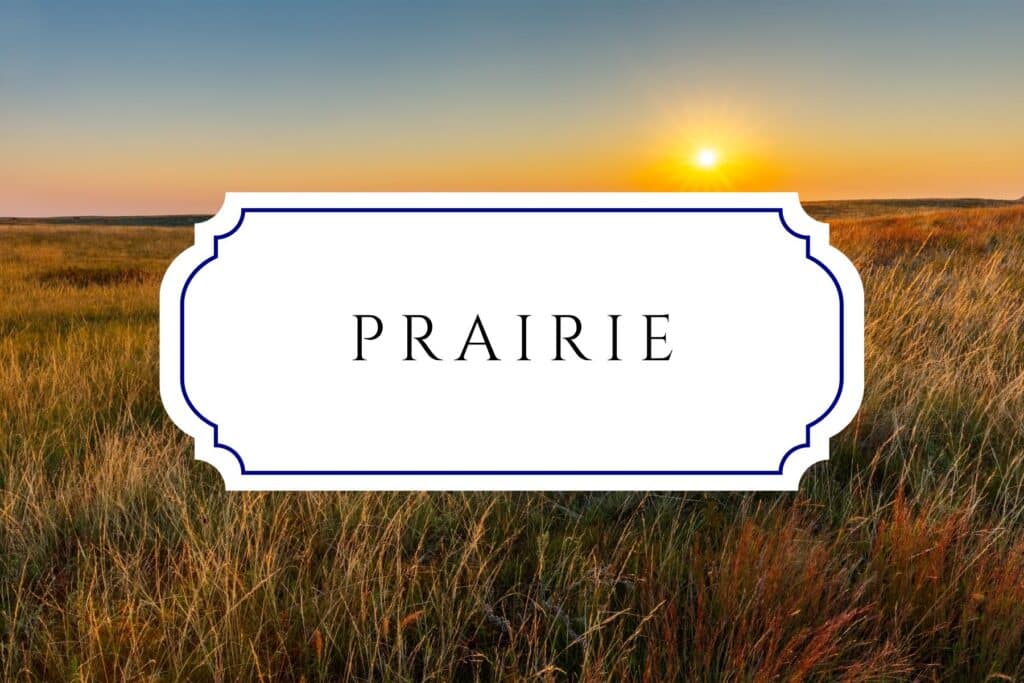
Origin: English; French; Latin
Meaning: Meadow; Flat grassland
Prairie, pronounced PRAIR-ee, is derived from the French word prairie, ultimately from the Latin word pratum, meaning "meadow." It refers specifically to the vast, flat grasslands of central North America.
Valley

Origin: English; French; Latin
Meaning: Low area of land between two hills or mountains
Valley, pronounced VAL-ee, comes from the Old French valee and Latin vallis, referring to the low land between hills or mountains. It can also be used as a diminutive of Valerie, meaning “to be strong” in Latin.
Savannah
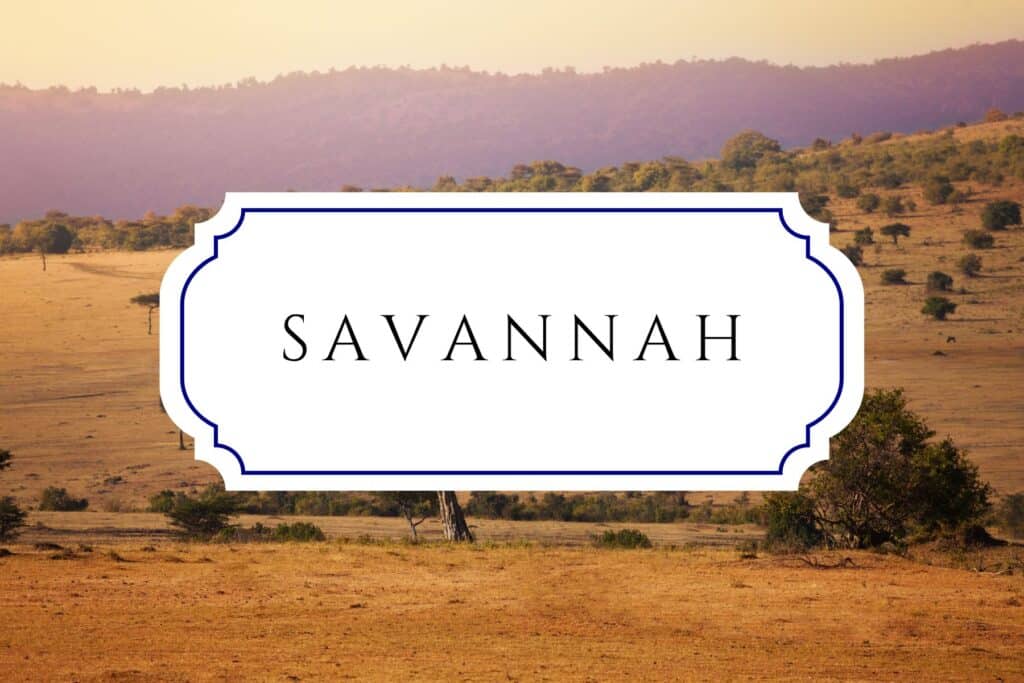
Origin: English; Spanish; Taino
Meaning: Treeless plain; City in Georgia
Savannah, pronounced suh-VAN-uh, is derived from the Spanish word sabana, which came from the Taino word zabana, referring to a “treeless plain.” It's also the name of a historic city in Georgia, USA.
Leah

Origin: Old English; Hebrew; Akkadian
Meaning: Meadow; Open Field; Weary; Cow
Leah, pronounced LEE-uh, comes directly from the Old English word leah, meaning “meadow” or “open field.” It can also be derived from the Hebrew word laʾa, meaning “weary,” or Akkadian word littu, meaning “cow.”
Sierra

Origin: Spanish
Meaning: Mountain Range; Saw
Sierra, pronounced see-EHR-uh, comes from the Spanish word sierra, meaning “mountain range” or “saw,” referring to the jagged appearance of mountains. The Sierra Nevada is a mountain range in the Western United States.
Glyn

Origin: Welsh; English
Meaning: Valley; Glen
Glyn, pronounced GLIN, is derived from the Welsh word glyn, meaning "valley" or "glen." In English, a “glen” is a narrow valley deep in the mountains that’s either lush and green or forms into a stream.
Glade

Origin: English
Meaning: Open space in the woods; Bright space in the woods
Glade, pronounced GLAYD, comes from the Middle English glode, referring to an open, bright space within a woodland. Glades are often grassy meadows under the canopy of deciduous trees.
Mesa
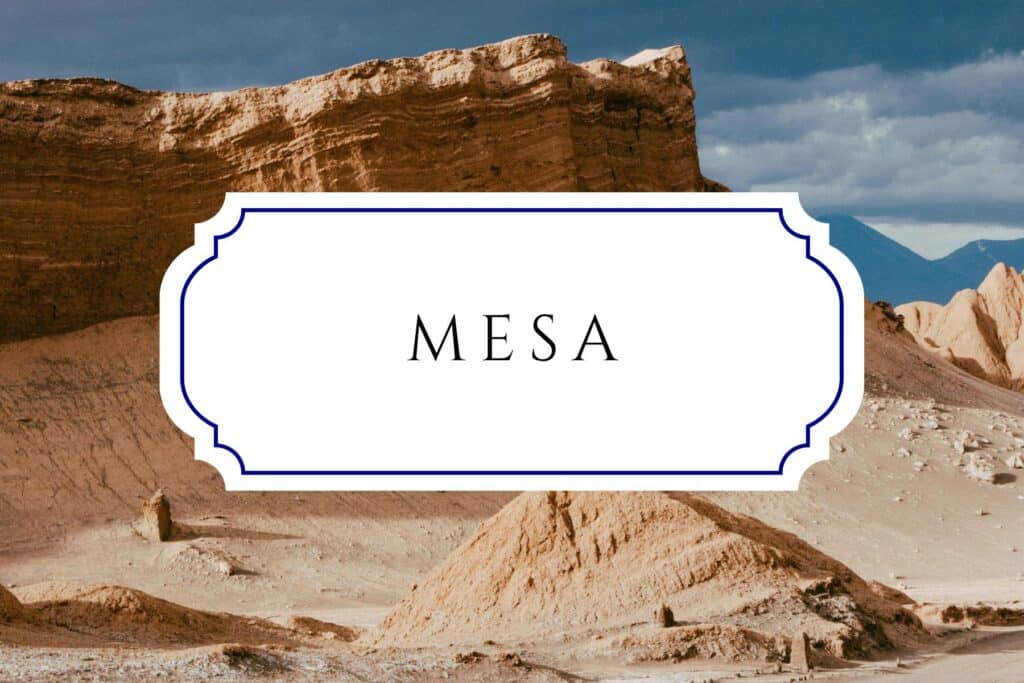
Origin: English; Spanish; Latin
Meaning: Plateau; Flat-topped hill; Table
Mesa, pronounced MAY-suh, is derived from the Spanish word mesa, meaning “plateau” or “table,” from the Latin word mensa, meaning “table.” A mesa is a flat-topped hill or mountain with steep sides.
Gorica
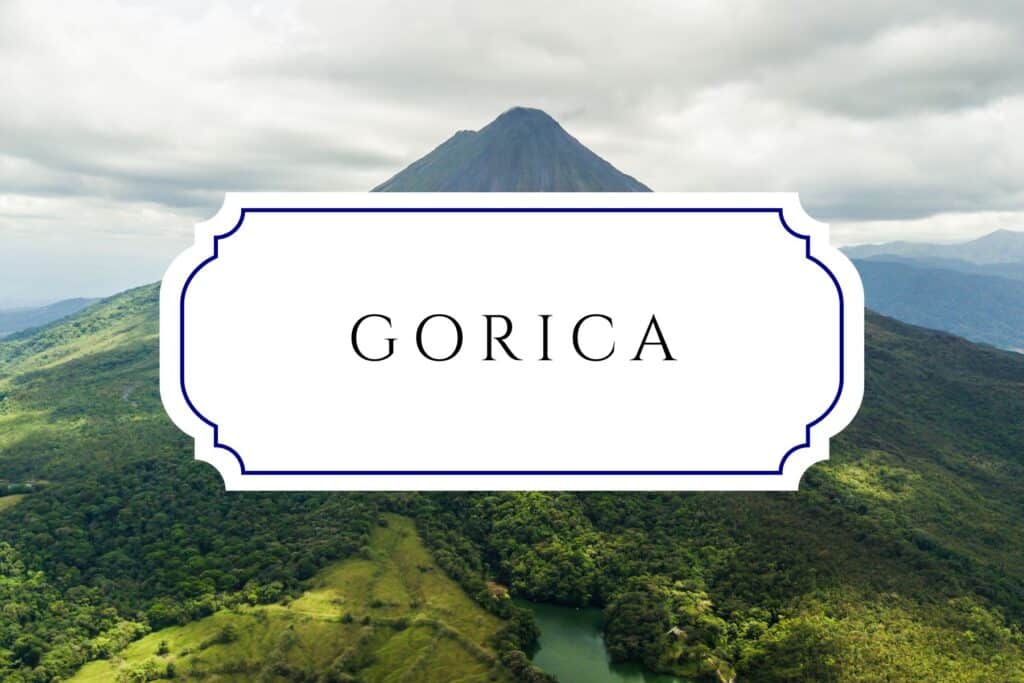
Origin: Slavic
Meaning: Little mountain; Small mountain
Gorica, pronounced GOR-ee-tsa, is the feminine form of Goran, which comes from the Slavic word gora, meaning “mountain.” The suffix -ica indicates “small,” hence the name’s meaning “little mountain.”
Earth Names Inspired by Gemstones
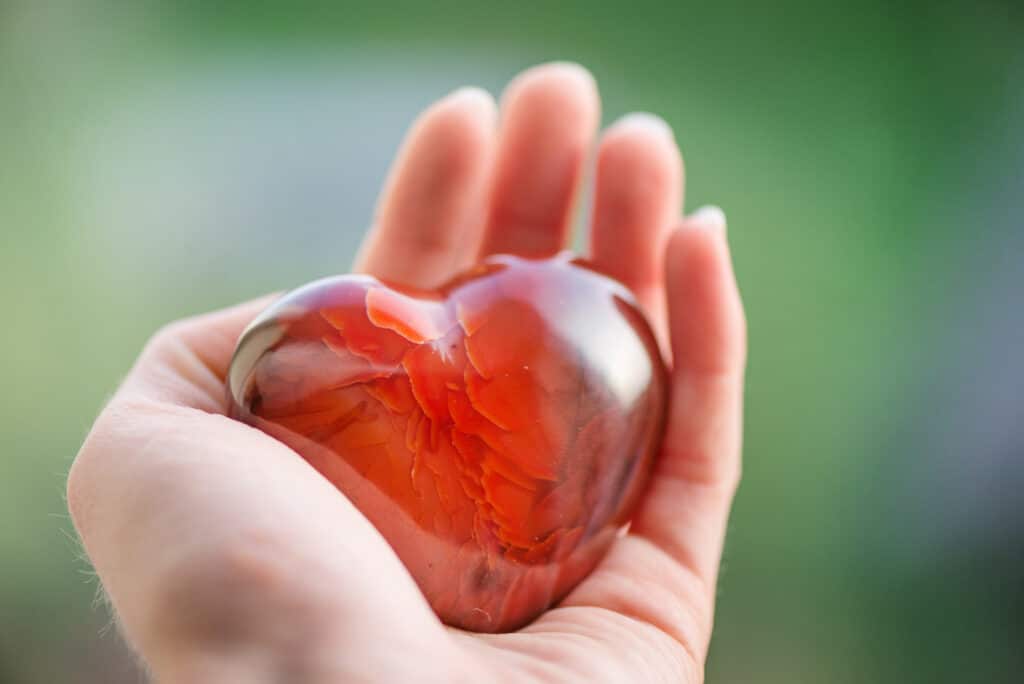
The Earth is a treasure trove of precious gemstones, jewels and minerals.
That’s what makes baby names like Bijou, the french word for “jewel,” and Gemma, the Italian word for “precious stone” or “gem,” perfect for an Earth Day-inspired name for your daughter.
Of course, no gemstone name is more popular than Ruby.
Ruby was the 66th most popular girl’s name in the United States in 2023 and has appeared in the top-100 every year since 2013, according to the U.S. Social Security Administration (SSA).
Here are some more earthy girl names inspired by gemstones and minerals!
Amethyst
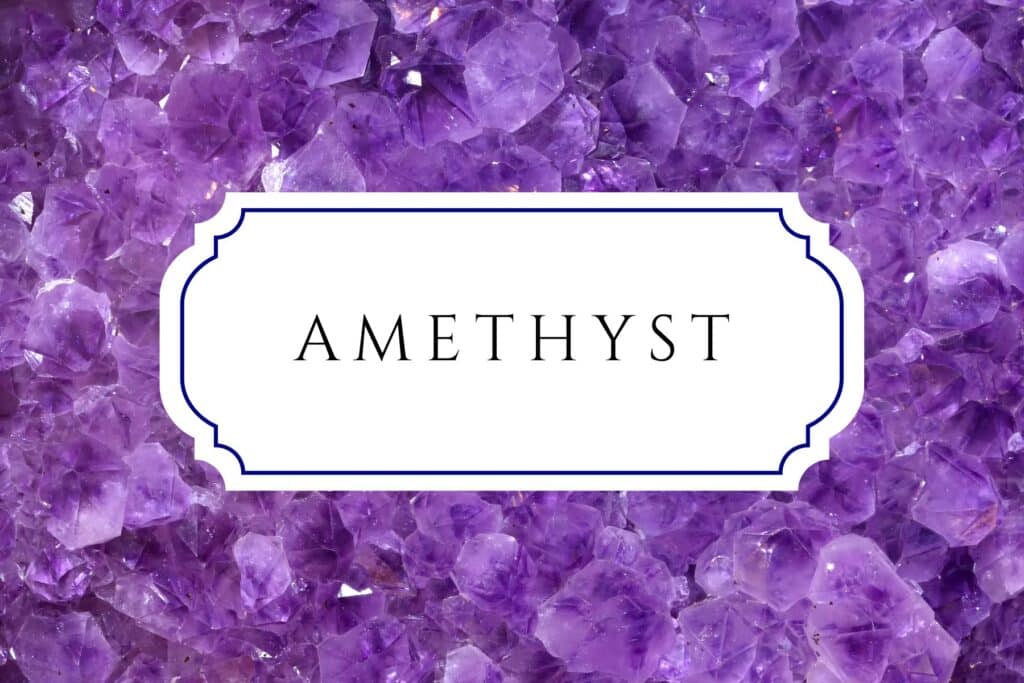
Origin: Greek
Meaning: Purple gemstone; Not intoxicating
Amethyst, pronounced AM-uh-thist, is derived from the Greek negative prefix a combined with the Greek word methystos, meaning “intoxicated.” Ancient Greeks believed the purple gemstone was a remedy for drunkenness. It’s also the traditional birthstone for February.
Esmeralda

Origin: Spanish; Portuguese
Meaning: Emerald; Green gemstone; May birthstone
Esmeralda, pronounced ez-meh-RAL-duh, comes directly from the Spanish and Portuguese word for “emerald.” Emerald is a vibrant green to bluish-green gemstone that also acts as the birthstone for May.
Crystal

Origin: Greek; English
Meaning: Ice; Clear quartz
Crystal, pronounced KRIS-tul, derives from the Greek word krystallos, meaning "ice" or clear quartz. A crystal is a solid whose atoms are arranged in a highly ordered repeating pattern. Healing crystals are believed to promote mental wellbeing, energy flow and emotional healing.
Margaret

Origin: Greek
Meaning: Pearl; June birthstone
Margaret, pronounced MAR-guh-ret, is derived from the Greek word margarites, meaning "pearl." A pearl is a gemstone formed naturally within the shell of a mollusk, such as an oyster or clam. It’s the traditional birthstone for June.
Jade

Origin: Spanish; English
Meaning: Flank; Green gemstone; Stone of the colic
Jade, pronounced JAYD, comes from the Spanish phrase piedra de ijada, meaning "stone of the side” or “stone of the flank.” The green gemstone got its name from the belief that it could cure renal colic.
Giada

Origin: Italian; Spanish
Meaning: Jade; Green gemstone; Stone of the flank
Giada, pronounced JAH-dah, is the Italian word for "jade," ultimately derived from the Spanish phrase piedra de ijada, meaning “stone of the flank.” It’s a green gemstone that was once believed to cure kidney ailments.
Beryl
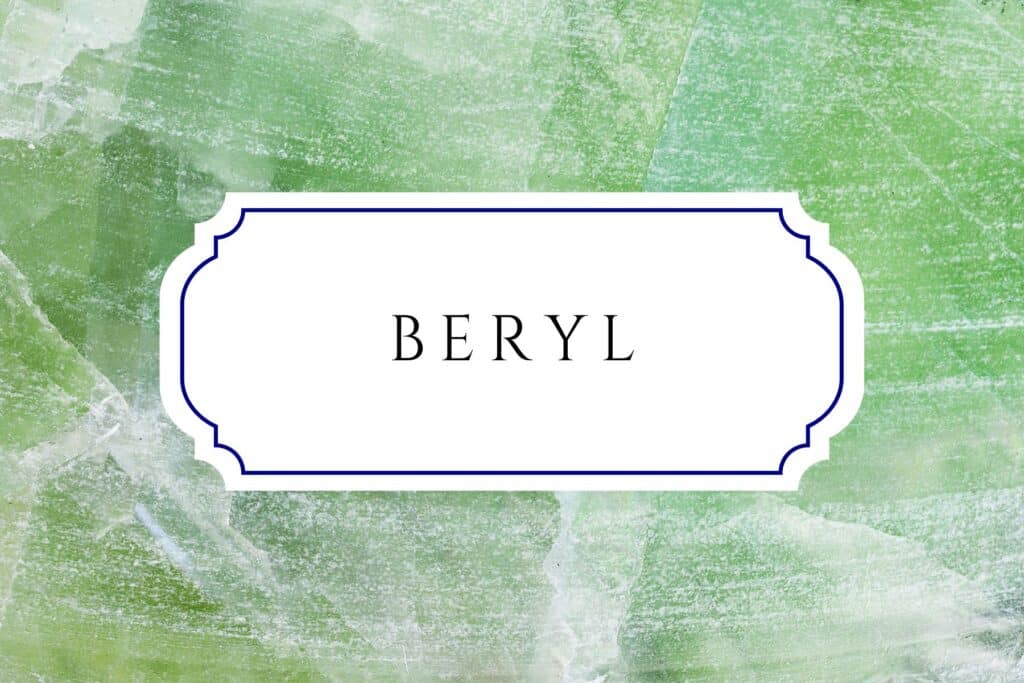
Origin: Greek; Latin
Meaning: Clear gemstone; Pale green gemstone
Beryl, pronounced BEHR-il, comes from the Latin word beryllus and Greek beryllos, referring to the clear or pale green precious gemstone. Beryl is the primary source of the chemical element beryllium.
Opal

Origin: Sanskrit; English
Meaning: Jewel; Iridescent gemstone; October birthstone
Opal, pronounced OH-pul, is derived from the Sanskrit word upala, meaning "jewel.” Opal is a hydrated amorphous form of silica known for its unique "play-of-color" or iridescence. It’s the traditional birthstone for October.
Peridot
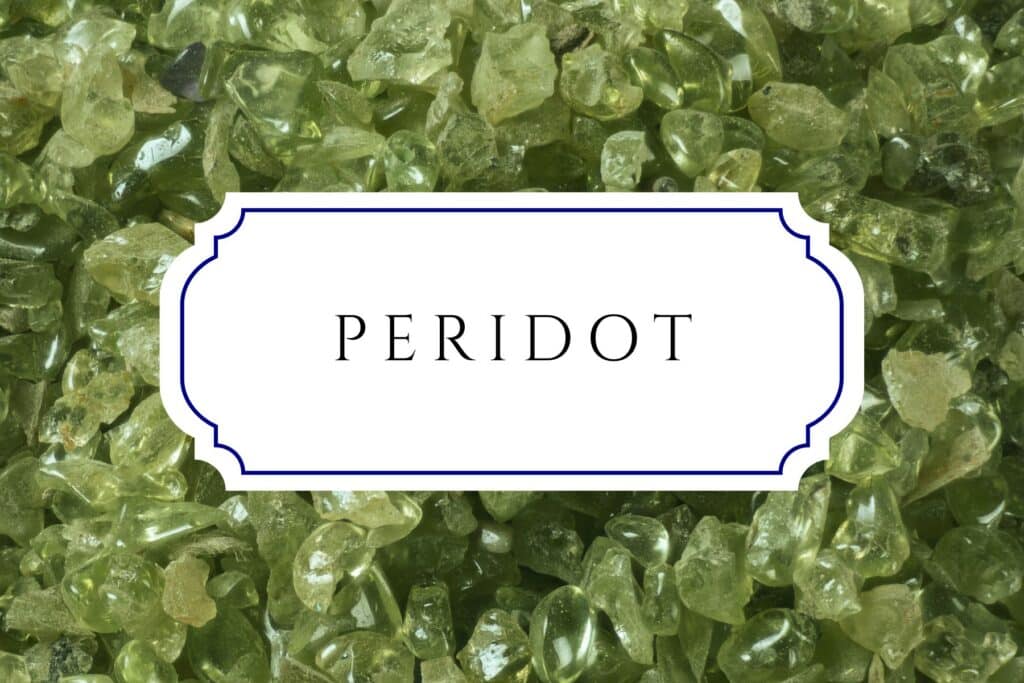
Origin: French; English
Meaning: Olive-green gemstone; August birthstone
Peridot, pronounced PEHR-ih-dot or PEHR-ih-doh, comes from the French péridot, referring to the precious olive-green gemstone primarily made from the mineral forsterite. It’s the traditional birthstone for August.
Amber

Origin: Arabic; English
Meaning: Ambergris; Fossilized tree resin
Amber, pronounced AM-ber, derives from the Arabic word anbar, originally referring to ambergris (a solid, waxy, flammable substance produced in the digestive system of sperm whales). Today, amber refers to a fossilized tree resin and hardened form of sap from ancient trees.
Coral

Origin: Greek; Latin; English
Meaning: Of the sea; Organic gemstone
Coral, pronounced KOR-ul, comes from the Greek korallion through Latin corallium, referring to the marine invertebrates and their characteristic red-orange calcium carbonate skeletons.
Diamond

Origin: Greek; English
Meaning: Hard gemstone; Unconquerable; April birthstone
Diamond, pronounced DYE-mund, derives from the Greek word adamas, meaning "unconquerable" or "invincible," referring to the gemstone's hardness. This is the traditional birthstone for the month of April.
Earth Names Related to Plants and Flowers

Botanical names are some of the most trendy baby names today — with or without Earth Day.
For example, Olivia, which means “olive tree” in Latin, has been the No. 1 most popular girl’s name in the United States every year since 2019 and a top-5 girl’s name every year since 2008.
Violet and Lily, both of which are inspired by flowers, ranked inside the top-20 in 2023, according to the SSA, while Ivy, Willow, Lillian, Leilani, Iris and Liliana all cracked the top-100.
And let’s not forget about some of the more unique options like Blossom and Petal!
Since many people celebrate Earth Day by planting flowers and trees, botanical names are perfect for an Earth Day baby — so here are some of our favorites!
Rowan

Origin: Old Irish; Gaelic; English
Meaning: Little red one; Mountain ash tree
Rowan, pronounced ROH-uhn, comes from the Old Irish word ruad, meaning "little red one," referring to the bright red berries of the mountain ash tree. In Celtic folklore, the rowan tree was believed to offer protection against enchantment.
Carmela

Origin: Hebrew
Meaning: Garden; Orchard
Carmela, pronounced kar-MEL-uh or kar-MAY-luh, derives from Mount Carmel in Israel, which gets its name from the Hebrew word karmel, meaning "garden" or "orchard." The mountain was mentioned in the Old Testament.
Jessamine
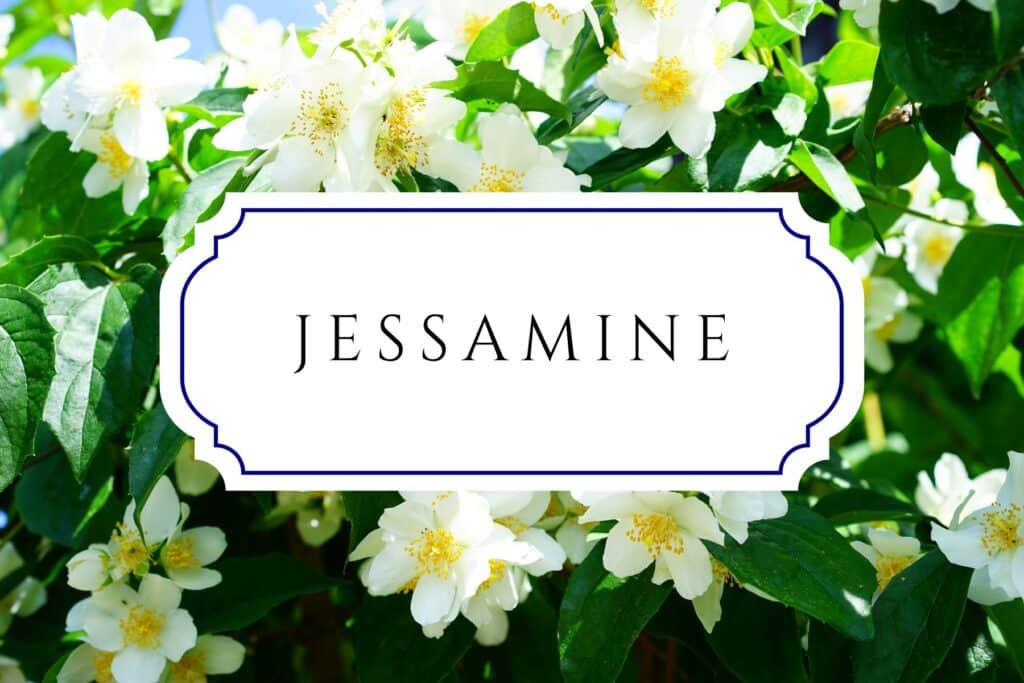
Origin: Persian
Meaning: Jasmine flower
Jessamine, pronounced JESS-uh-min, is a variant of Jasmine, which is derived from the Persian word yāsamīn, referring to the fragrant climbing vine with delicate white or yellow blossoms that’s often used for perfumes.
Willow

Origin: Old English
Meaning: Willow tree
Willow, pronounced WIL-oh, comes directly from the English word for the graceful tree with long, thin, flexible branches. The tree gets its name from the Old English word welig and is known for thriving in wet areas.
Heather

Origin: English
Meaning: Heather; Flowered heath
Heather, pronounced HETH-er, comes from the Middle English word hather, referring to the hardy evergreen shrub with tiny purple, pink, or white flowers that are known to cover hillsides in Scotland and England. Its scientific name is Calluna vulgaris.
Azalea
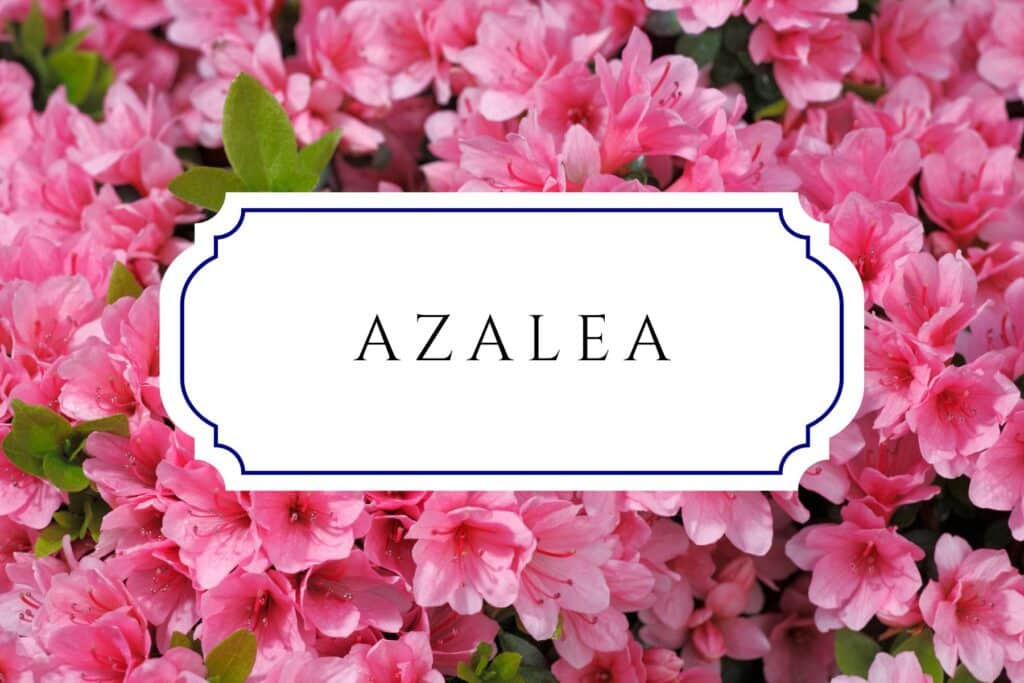
Origin: Greek; English
Meaning: Azalea flower; Dry flower
Azalea, pronounced uh-ZAY-lee-uh, derives from the Greek word azaleos, meaning "dry" or "parched," referring to the woody nature of the plant. It’s known for its vibrant, funnel-shaped flowers, and is often deciduous.
Jacinta
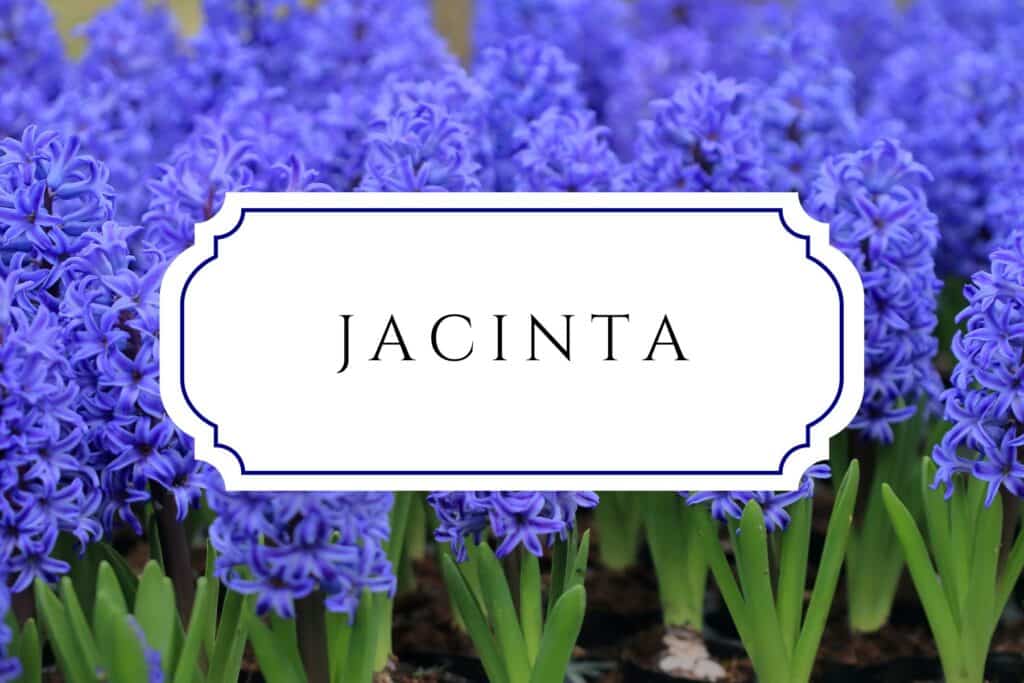
Origin: Spanish; Portuguese; Greek
Meaning: Hyacinth flower
Jacinta, pronounced juh-SIN-tuh or hah-SEEN-tah (Spanish), is the Spanish and Portuguese feminine form of Hyacinthus, which is a Greek name derived from the hyacinth flower. In Greek mythology, Hyakinthos was accidentally killed by the god Apollo.
Lauren

Origin: Latin
Meaning: Laurel tree; Victory; Achievement
Lauren, pronounced LOR-en, is the feminine form of Laurence and Lawrence, which comes from the Latin word laurus, referring to the laurel tree or sweet bay. In ancient Rome, laurel wreaths symbolized victory and achievement.
Magnolia
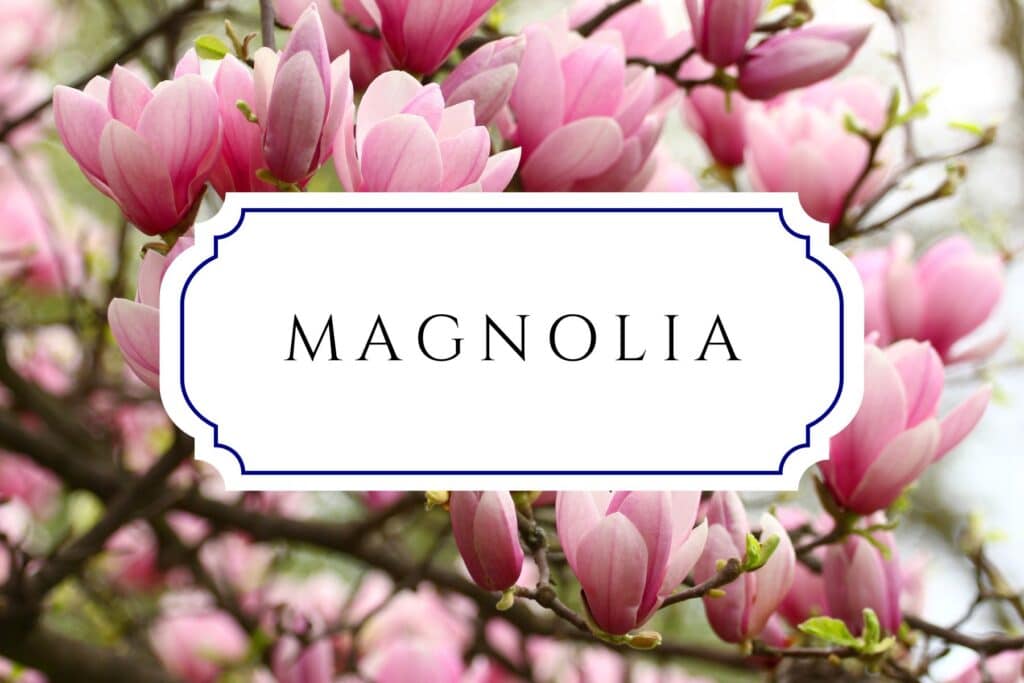
Origin: French; English; Latin
Meaning: Magnol’s flower
Magnolia, pronounced mag-NOH-lee-uh, comes from the flowering tree named after French botanist Pierre Magnol (1638-1715). Magnolias are known for their large fragrant flowers, which may be bowl-shaped or star-shaped.
Amaryllis

Origin: Greek; English
Meaning: Sparkle; Red flower
Amaryllis, pronounced am-uh-RIL-iss, comes from the Greek word amarysso, meaning “to sparkle.” In Greek mythology, Amaryllis was a shepherdess who demonstrated her love by piercing her heart with a golden arrow. The striking red flower was believed to have bloomed from her blood.
Water-Inspired Earthy Names for Girls

The Earth is a watery place — despite all the land it occupies.
In fact, according to the U.S. Geological Survey (USGS), “about 71 percent of the Earth's surface is water-covered, and the oceans hold about 96.5 percent of all Earth's water.”
And that doesn’t include the water in the air — or the water found inside each and every one of us.
In a world that often feels increasingly disconnected from the natural environment, bestowing a water-inspired name upon your daughter creates a lasting bond with the earth's most precious resource.
Here are some of our favorites that are worthy of being added to your list of earthy names for girls!
Isla

Origin: Spanish; Scottish
Meaning: Island
Isla, pronounced EYE-luh or EES-luh depending on language, comes from the Spanish word for "island" and can also be tied to the Scottish name Islay, referring to an island off the west coast of Scotland.
Brooke

Origin: Old English
Meaning: Brook; Small natural stream
Brooke, pronounced BROOK, comes directly from the English word brook and Old English word broc, referring to a small natural stream. It originated as a surname for someone who lived near a brook.
Marina

Origin: Italian; Spanish; Latin; English
Meaning: Of the sea; Harbor with moorings
Marina, pronounced muh-REE-nuh, comes directly from the Italian and Spanish word marina, which is derived from the Latin word marinus, meaning "of the sea." In English, a marina refers to a specially designed harbor with moorings.
Kai

Origin: Hawaiian; Chinese
Meaning: Sea; Triumph; Victory
Kai, pronounced KYE, comes directly from the Hawaiian word kai, meaning “sea.” It can also be derived from the Chinese word kǎi, meaning “triumph” and “victory.” Some parents prefer the name Kaia for girls.
River

Origin: English; Old French; Latin
Meaning: Natural stream of freshwater
River, pronounced RIV-er, comes directly from the English word, which is derived from the Old French word riviere and Latin word ripa, referring to a riverbank or natural stream of freshwater that flows from a source.
Ada

Origin: Turkish; Germanic; Hebrew
Meaning: Island; Noble; Adornment
Ada, pronounced AY-duh, comes directly from the Turkish word ada, meaning “island.” It can also derive from the Germanic element adal, meaning “noble” or the Hebrew element ada, meaning “adornment.”
Marisol

Origin: Spanish
Meaning: Sea and sun
Marisol, pronounced mar-ee-SOL, comes directly from the Spanish phrase mar y sol, meaning “sea and sun.” It’s sometimes used as a combination of the names Maria and Sol or a short form of María Soledad.
Oceana

Origin: Greek
Meaning: Ocean; Large body of water
Oceana, pronounced oh-she-AH-nuh, is the feminine form of Oceanus, which comes from the Greek name Okeanos, referring to the body of water that surrounds the Earth. In Greek mythology, Okeanos was the Titan who personified this body of water.
Talia

Origin: Hebrew; Australian
Meaning: Dew of God; God’s dew; Near water
Talia, pronounced TAL-yuh or tuh-LEE-uh, is composed of the Hebrew elements tal, meaning “dew,” and yah, referring to the Hebrew God. It’s also believed to mean “near water” in an Australian Aboriginal language.
Cascade

Origin: Italian; French; Latin; English
Meaning: Waterfall; Small falls
Cascade, pronounced kas-KAYD, comes from the Italian word cascata through French, and is ultimately derived from the Latin word cadere, meaning "to fall." It refers to a small waterfall or series of small falls.
Thalassa

Origin: Greek
Meaning: Sea; Goddess of the sea
Thalassa, pronounced thuh-LASS-uh, comes directly from the Greek word thalassa, meaning “sea.” In Greek mythology, Thalassa was the primordial goddess of the sea who created the fish and other sea creatures.
Earthy Girl Names Inspired By the Color Green

The color green is synonymous with everything Earth Day represents.
It not only symbolizes life itself — from the first tender shoots of spring to the lush forests that sustain our ecosystem — but it also represents the commitments of environmentalists worldwide.
After all, there’s a reason they call environmentalism the “green movement.”
And while “going green” can mean a lot of things — from taking part in local cleanups to recycling and buying energy-efficient appliances — parents can do their part by “going green” with their baby’s name.
With that, let’s take a look at some of our favorite earthy girl names inspired by the color green!
Chloe

Origin: Greek
Meaning: Green shoot; Blooming; Goddess of the harvest
Chloe, pronounced KLOH-ee, comes from the Greek word khloe, meaning "young green shoot" or "blooming." In Greek mythology, it was an epithet of the goddess Demeter, the goddess of the harvest, agriculture and fertility.
Sage

Origin: English; Latin
Meaning: Grey-green; Aromatic herb; Wise
Sage, pronounced SAYJ, has several origins as a word for wisdom, an aromatic herb (known as Salvia officinalis) used in cooking or a muted, earthy greyish-green, similar to the color of dried sage leaves.
Verda

Origin: Spanish; Latin
Meaning: Green; Truth
Verda, pronounced VER-dah, comes directly from the Spanish word verda and Latin word viridis, meaning “green.” It can also be a shortened form of the Spanish word verdad, meaning “truth.”
Olivia

Origin: Latin; English
Meaning: Olive tree
Olivia, pronounced oh-LIV-ee-uh, is derived from the Latin word oliva, meaning "olive." The olive tree, with its silver-green leaves, has been a symbol of peace and fertility since ancient times, especially in Greek.
Midori
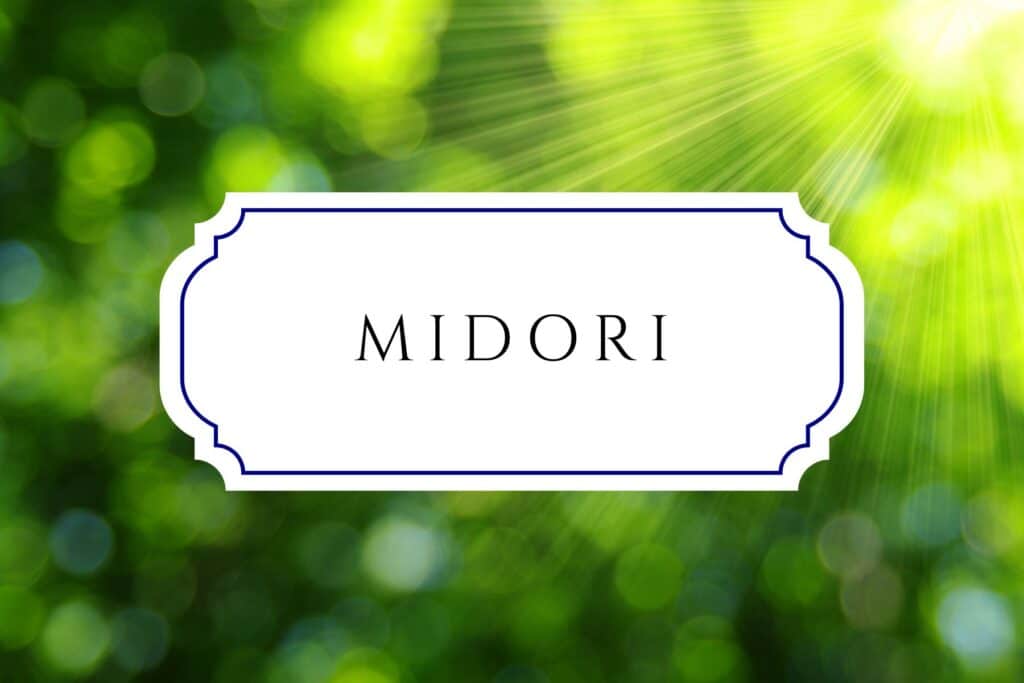
Origin: Japanese
Meaning: Green
Midori, pronounced mee-DOH-ree, comes directly from the Japanese word midori, meaning “green.” In Japanese culture, as with other cultures worldwide, green symbolizes youth, vigor and the natural world.
Viridia

Origin: Latin
Meaning: Green; Verdant
Viridia, pronounced vir-ID-ee-uh, is the feminine form of Viridius and is derived from the Latin viridis meaning "green" or "verdant." It’s an uncommon first name, meaning it’ll be unique to your daughter.
Blerina

Origin: Albanian
Meaning: Greenery; Vegetation; Hoverfly
Blerina, pronounced bleh-REE-nah, is the feminine form of Blerim, which comes from the Albanian word for “greenery” or “vegetation.” Blerina can also refer to a subtribe of hoverflies, which are known to fly around flowers.
Kelly

Origin: Irish
Meaning: War-like; Bright-headed; Bright green color
Kelly, pronounced KEL-ee, comes from the Irish surname Ó Ceallaigh. While its original meaning relates to warfare or brightness, its association with green comes from "Kelly green," the bright green color associated with Irish identity.
Prasina
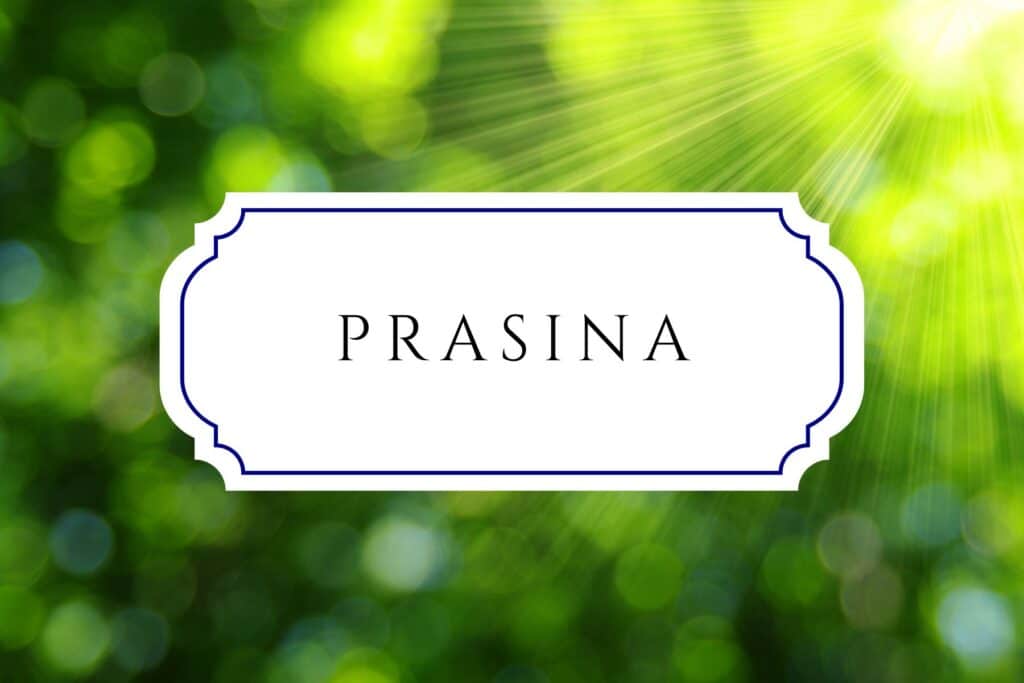
Origin: Greek
Meaning: Green
Prasina, pronounced prah-SEE-nah, comes from the Greek word prasinos, meaning "green." There’s a restaurant in Missouri called Prasino St. Charles that prides itself on using local, organic and sustainably sourced ingredients — keeping true to its “green” name.
Verdiana
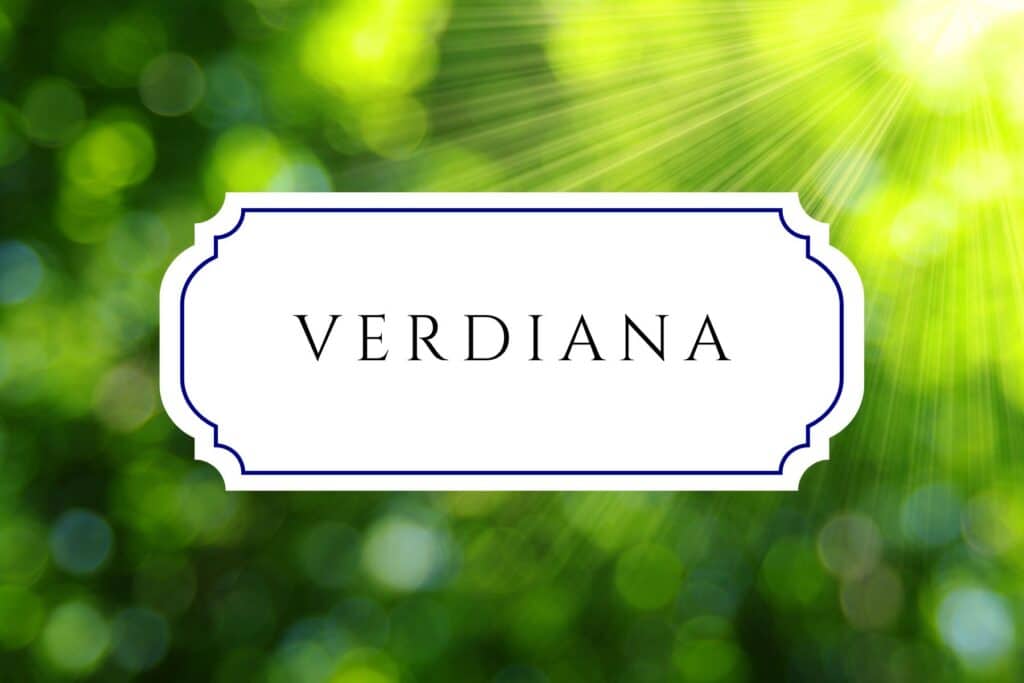
Origin: Spanish; Latin
Meaning: Green
Verdiana, pronounced ver-dee-AH-nah, is an elaborated form of the Spanish word verda and Latin word viridis, meaning “green.” Saint Verdiana, also known as Viridiana, was an Italian saint and anchoress.
YOU MAY ALSO LIKE: 80+ Baby Names With Number-Related Meanings
Not feeling inspired by earthy girl names? That's perfectly okay – they're certainly not for everyone!
The good news is we have plenty more unique baby name ideas at Mod Moms Club to explore. From vintage classics to modern innovations, our extensive collection has something for every parent's taste.
And don't forget about our baby name generator — designed specifically to make the baby-naming process as easy and stress-free as possible for expecting parents.












